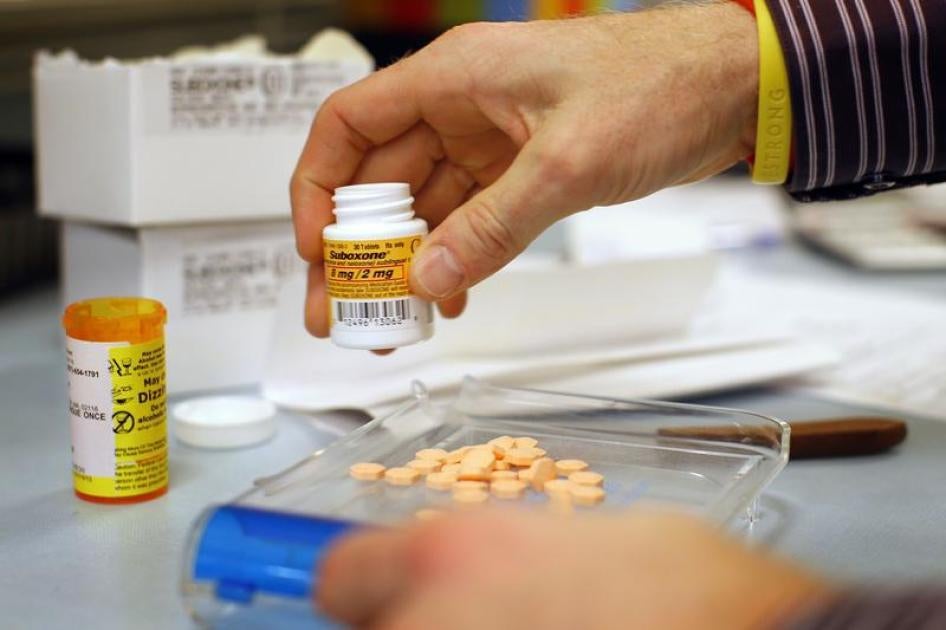Faced with alarming rates of drug use and overdose deaths, President Trump has vowed to take decisive action, telling Congress that as a result of his administration's efforts, "our terrible drug epidemic will slow down, and ultimately stop."
But the healthcare policies he is proposing would do exactly the opposite, with potentially devastating consequences for communities in rural counties that form the backbone of his support.
Trump is right about a resurgence of problematic drug use: deaths from prescription opioids as well as heroin and fentanyl, a synthetic opioid, have increased 200 percent in the last decade, and the crisis shows few signs of slowing down. Drug overdose deaths in rural counties far outstrip those in metropolitan areas.
The Centers for Disease Control (CDC) has identified 220 counties that are at high risk of an HIV outbreak similar to the one in Scott County, Indiana in 2015 due to high rates of poverty, injection drug use and lack of health services. The majority of them are in rural areas that voted for Trump, with more than half located in Tennessee, West Virginia and Kentucky.
Trump promised Congress that "we will expand treatment for those who have become so badly addicted." The president's 2018 budget proposes $500 million for expanded drug treatment. But no details are provided as to what this means. Even if the money survives the budget process and goes to build more drug treatment centers or to expand existing ones, the people who most need the treatment might not be able to afford it.
The fact is that in the United States, insurance is what provides access to healthcare. The GOP's proposed replacement for the Affordable Care Act (ACA), supported by the president, would threaten to undo the progress that is already underway to expand coverage for opioid dependence.
The ACA requires drug treatment to be a covered service for most private insurers and under Medicaid expansion. In the 31 states that expanded Medicaid (and the District of Columbia), 1.3 million people have used their new benefits to get treatment for drug dependence.
The GOP law would eliminate the mental healthcare parity requirement and would phase Medicaid expansion out altogether by 2020.
This could have devastating impact for people caught up in the opioid crisis. In Louisiana, for example, 14,000 people have accessed drug dependence treatment under Medicaid expansion, just since the program began in July 2016.
Leigh Ann de Monredon, chief medical officer for primary care at Odyssey House Louisiana, a health clinic that also provides residential drug treatment in New Orleans, said the ACA had resulted in a "sea-change" in access to care: More people can afford residential treatment as well as medications that are part of the standard of care for opioid dependence.
"We can now give them medications like Suboxone or Vivitrol, and our relapse rates are much lower," de Monredon said. The clinic also offers preventive care services, so that "our doctors can identify potential drug problems before they become addictions."
The GOP plan would also reduce tax credits and subsidies for purchasing insurance. The Congressional Budget Office (CBO) estimates that within a decade, 24 million people will lose their insurance, 14 million of them by 2018. Low-income, older adults living in rural areas would be hardest hit. This population is already experiencing higher mortality rates, due in part to the increase in depression, suicide and drug overdoses among white, middle-aged men and women.
For many of them, putting health insurance out of reach, particularly mental health care, would be a matter of life and death.
The ACA is not perfect, but it is doing exactly what Trump has promised to do for his supporters and all Americans: expand access to drug treatment for people who struggle with problematic drug use. Taking away their insurance coverage will leave them without medical care and at risk of jail, death from overdose, and infectious diseases like HIV and hepatitis.
The policies Trump is supporting today will, if enacted, ensure that his promises remain unfulfilled.








